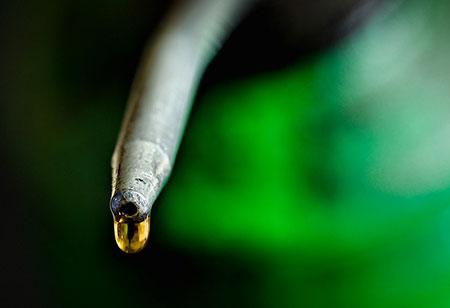THANK YOU FOR SUBSCRIBING

How Quality Lubrication Extends Machinery Longevity and Performance in Europe
Nicholas Wright, Industrial Lubrication Manager, Gap

 Nicholas Wright, Industrial Lubrication Manager, Gap
Nicholas Wright, Industrial Lubrication Manager, GapEurope's industrial landscape requires high-quality lubricants for machine longevity and performance, promoting sustainable practices and energy efficiency through the Ecodesign Directive, requiring collaboration among manufacturers and end-users.
Across Europe's industrial landscape, from towering wind turbines to assembly line robots, machinery hums with the promise of progress. However, this efficiency hinges on an unsung hero: lubrication. The quality of lubricants directly impacts a machine's lifespan and performance, influencing production costs and environmental impact.
Friction's Foe, Efficiency's Engine
High-quality lubricants form a protective film, reducing friction and heat generation. This results in smoother operation, improved energy efficiency (think reduced electricity consumption!), and a longer machine lifespan.
Beyond Longevity: Performance on Point
Quality lubrication isn't just about extending the machine's lifespan and maintaining peak performance. Using high-performance lubricants in industrial fans reduces vibration and noise levels. This improves worker safety and comfort and allows the fans to operate at optimal speeds, maximising their efficiency.
The European Landscape: Regulations and Trends
Europe is a leader in promoting sustainable manufacturing practices. The Ecodesign Directive, for instance, sets strict energy efficiency standards for machinery. High-quality lubricants, by reducing energy consumption, play a crucial role in helping manufacturers comply with these regulations. Furthermore, the increasing focus on bio-based and readily biodegradable lubricants aligns with Europe's commitment to environmental responsibility.
The Cost Equation: Balancing Quality with Price
While high-quality lubricants offer significant benefits, there's a natural concern about cost. European manufacturers must strike a balance between initial investment and long-term savings. Life Cycle Cost (LCC) analysis can be a valuable tool. This approach considers not just the upfront cost of the lubricant but also factors like reduced maintenance costs, extended equipment lifespan, and improved energy efficiency. By factoring in these long-term benefits, European companies can see high-quality lubrication as an investment, not just an expense.
Lubricants Tailored for European Needs
European industries operate in diverse settings, from harsh North Sea offshore platforms to scorching Mediterranean factories. "One-size-fits-all" lubrication is a recipe for trouble. Fortunately, lubricant manufacturers are developing increasingly specialised options. For example, biodegradable lubricants are crucial for environmentally sensitive sectors like forestry and food processing. Food-grade lubricants are essential for machinery used in food production, ensuring consumer safety. Extended-life lubricants are ideal for wind turbines and other hard-to-reach applications, minimising maintenance frequency. This specialisation allows European industries to optimise performance and compliance across demanding environments.
The Future of Lubrication
The European lubricant industry is constantly evolving. Here are some exciting trends to watch. Nanotechnology lubricants use nanoparticles to reduce friction and wear further, potentially leading to even more significant efficiency gains. Sensor-embedded lubricants can self-monitor their condition, enabling real-time monitoring of lubrication health and optimising maintenance schedules. New methods for lubricant recycling and environmentally-friendly disposal are also being explored, minimising environmental impact. By embracing these innovations, Europe can position itself at the forefront of sustainable and efficient lubrication practices.
A Collaborative Approach
Ensuring optimal lubrication in Europe requires a collaborative effort. Here's how different stakeholders can contribute. Manufacturers should develop innovative, high-performance, and sustainable lubricants. Machine builders must design machinery with optimal lubrication points and compatibility with advanced lubricants. End-users should implement proactive lubrication practices, including oil analysis and maintenance personnel training. Through collaboration, Europe can ensure a well-oiled future for its industrial sector, paving the way for a more efficient, sustainable, and cost-effective tomorrow.
The impact of lubrication quality on machinery longevity and performance cannot be overstated. European industries can ensure efficient, sustainable, and cost-effective operations by adopting best practices in lubricant selection, analysis, and maintenance. As the continent strives for technological advancements, quality lubrication will continue to play a vital role in keeping the wheels of industry turning smoothly.
Read Also

















ON THE DECK